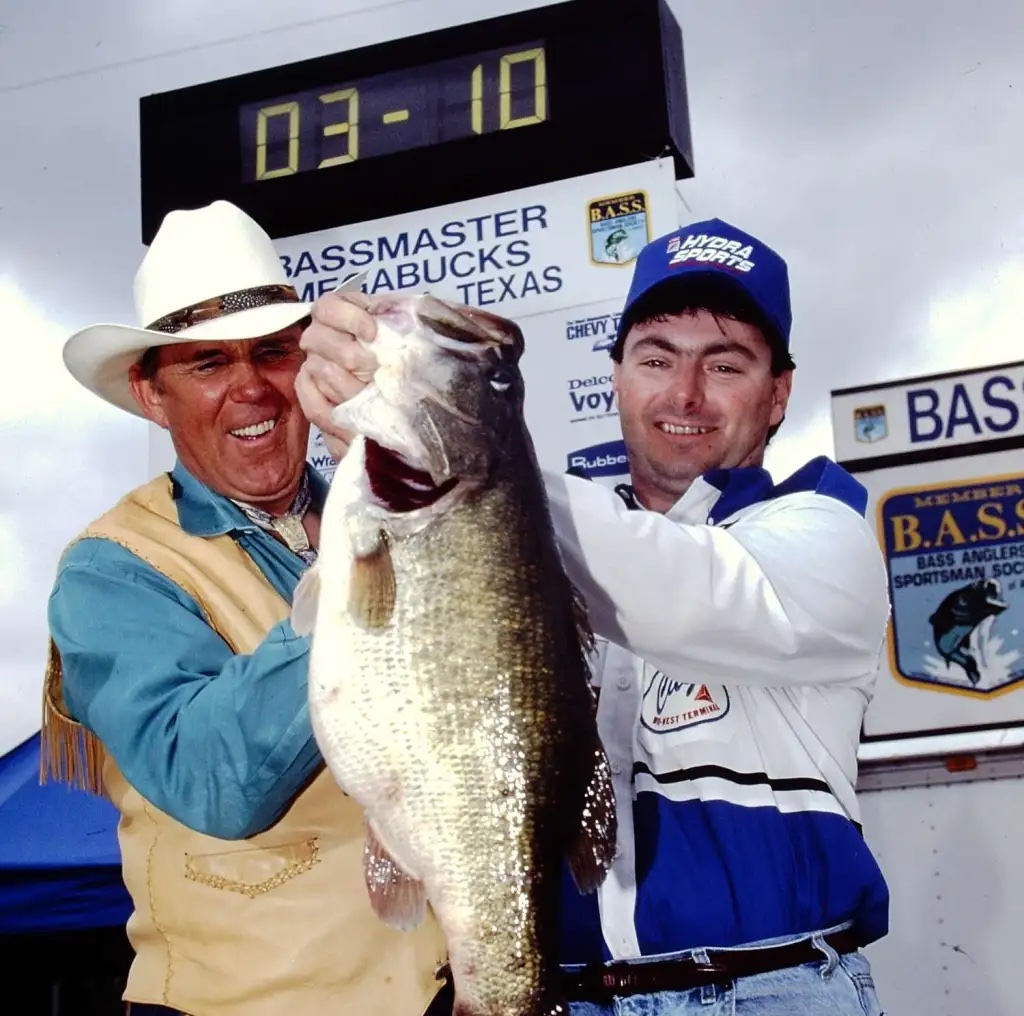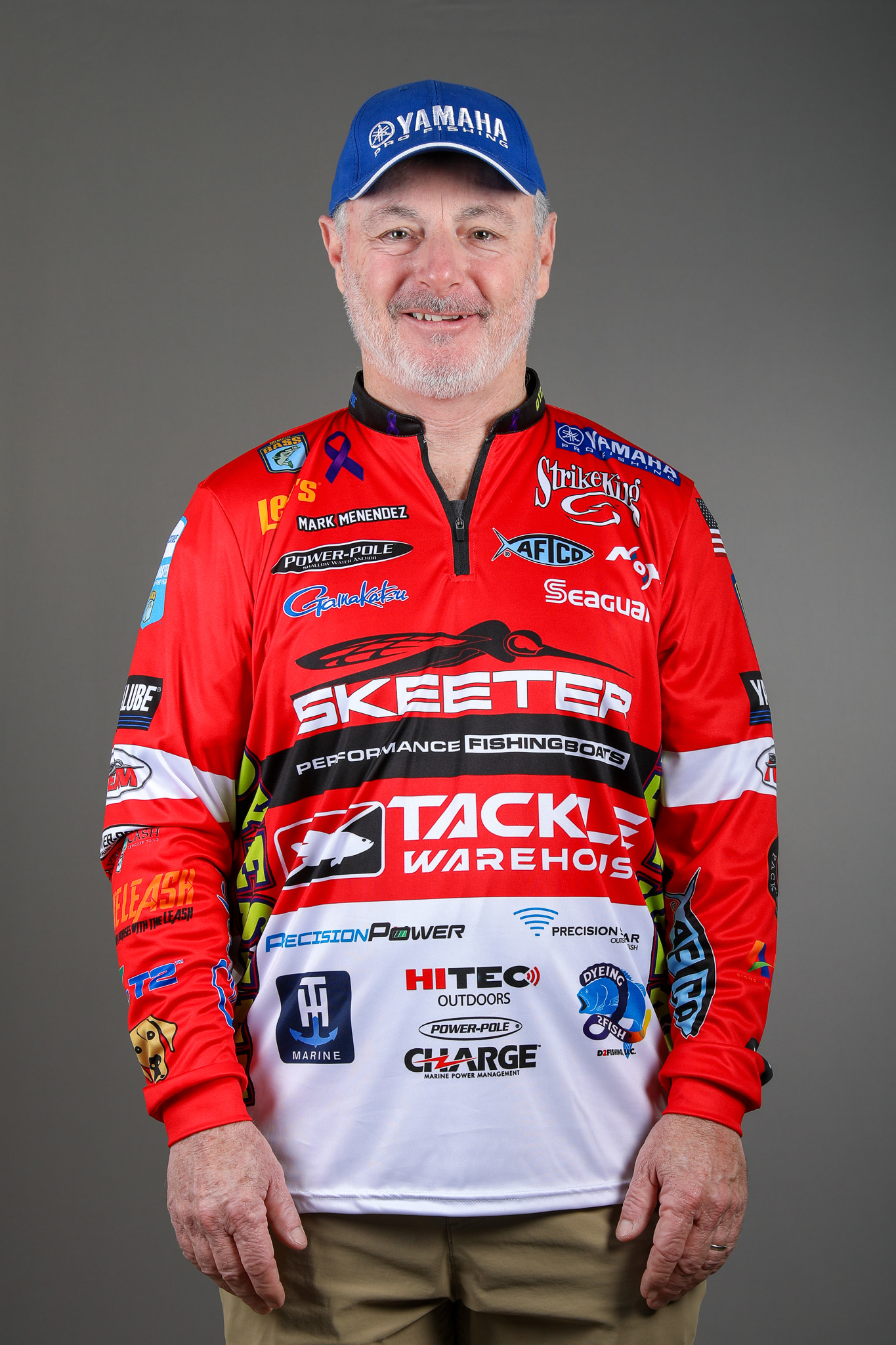
If you love to watch, read, participate in or make your living in and around bass fishing, Ray Scott touched your life.
We got the news Monday that Ray had passed away, and it made me start thinking about the impact he had on the sport. He was a businessman, a promotor, a storyteller and a conservationist – he made bass fishing.
For a young college kid from Paducah, Ky., Ray was larger than life. I first met him as a fan in 1987 when my mentor David Hutcheson was doing well in a Bassmaster tournament on Kentucky Lake. I was going to Murray State University at the time, and I would drive 30 minutes each day to watch the weigh-in. I remember seeing Ray in all his glory announcing that event, and it was the first time I was in close proximity to him.
David was one of the top fishermen around here, and although they were competitors on the water, he was friends with another angler named Bill Schroeder, who was a friend and fishing partner of Ray’s. While visiting with those two, I got to be around Ray and listen to him. I was awestruck by his ease on the microphone and his energy; he really lit up the area.
Fast forward a few years and I entered my first Bassmaster Tournament Trail event on the Mississippi and Illinois Rivers in Alton, Ill., and I guess he remembered me from my connections to David and Bill, so Ray made me feel at home. I don’t know if he meant to or it just happened this way, but Ray gave me opportunities to speak on the microphone during weigh-ins early in my career that helped shape me and give me confidence to perform on and off the water at this level. I will always be very grateful to Ray for that.
As I look at my career, all of my early “big moments” included him. I received the invitation – in the last spot – to fish the Top 100 events in the 1991/1992 season, and Ray was the emcee. In 1997, I caught what was the largest bass in Bassmaster history at Megabucks, a 13-pound, 9-ounce Richland Chambers beast that Ray made a massive deal over, highlighting me in the process.
I made my first Bassmaster Classic and got to be with Ray on stage. I won my first B.A.S.S. event in March of 1998 at Pickwick Lake, and Ray was there with that exciting commentary on the microphone, a big smile and a hug – I’ll never forget it. He was there for so many of my big early career moments.
I was so very fortunate to have him in my life and to have those kinds of memories of him, but in truth, he was that person for every one of us, directly or indirectly.
Without Ray, we quite possibly don’t have this sport as it is now. Ray set so many examples of how to be larger than life. He was a fixture at those tournaments for so long, and he was so effective at promoting the sport wherever he went. However, his biggest impacts likely come in developing the conservation practices of the sport and working so hard to lobby for fishing and the outdoors.
A couple of years ago, I was given the opportunity to work with and promote Yamaha’s Rightwaters Initiative. In that role, I knew I was going to be working on the Asian Carp issues on the Tennessee River and the sustainability and stewardship to be responsible users of our resources. I knew in that role that I was likely to rub elbows with politicians and conservation leaders. I thought a lot about Ray in that moment and realized I was going to be carrying a small amount of the conservation and communication torch he lit so many years ago.
I have missed seeing Ray at our events many times over the years. Our announcers and staff at B.A.S.S. do a great job, but he was also the foundation and history of the sport at once. He had this way of being larger than life, and if he accepted you, made you feel that way too, and that you belonged there on that stage with him.
The sport began and the building blocks of tournament bass fishing as a career spawned with him in 1968. There have been a lot of other things come and go in this sport over the years, but the shield that Ray Scott first made – that B.A.S.S. shield – has stood the test of time. Without him, none of us would have this career, or be able to fish in local tournaments.
He is the father of our industry; we all owe him a debt of gratitude. Thank you, Ray, for giving me an opportunity to do what I love. You will always be remembered, and you will be missed.





